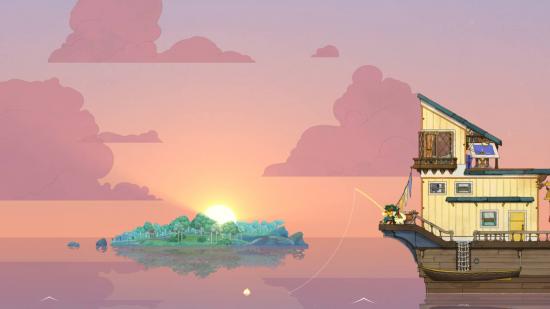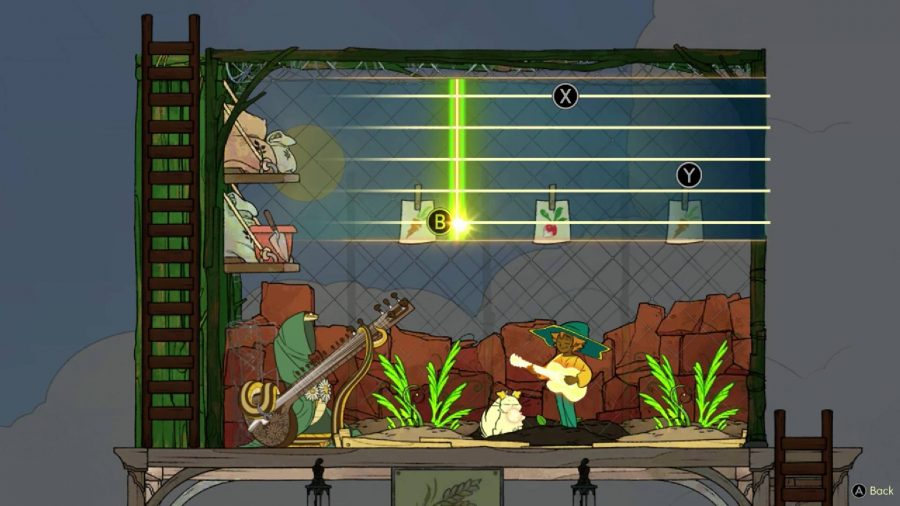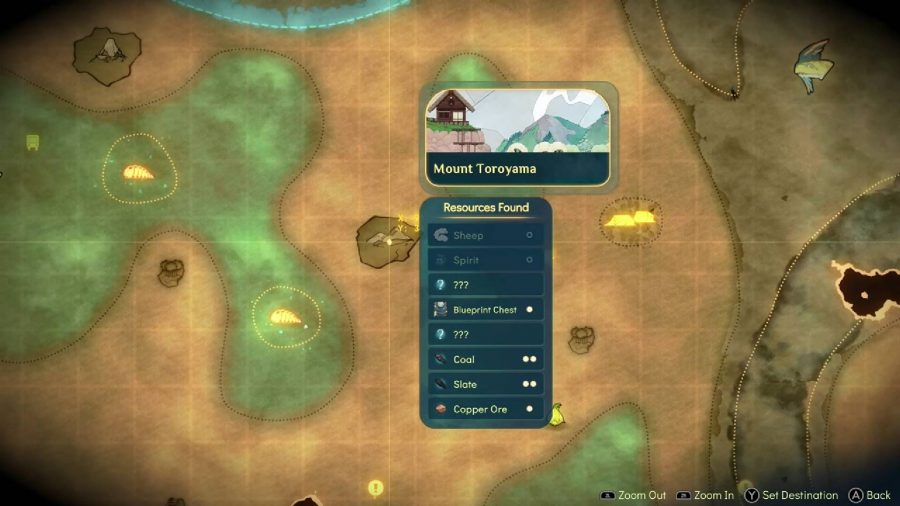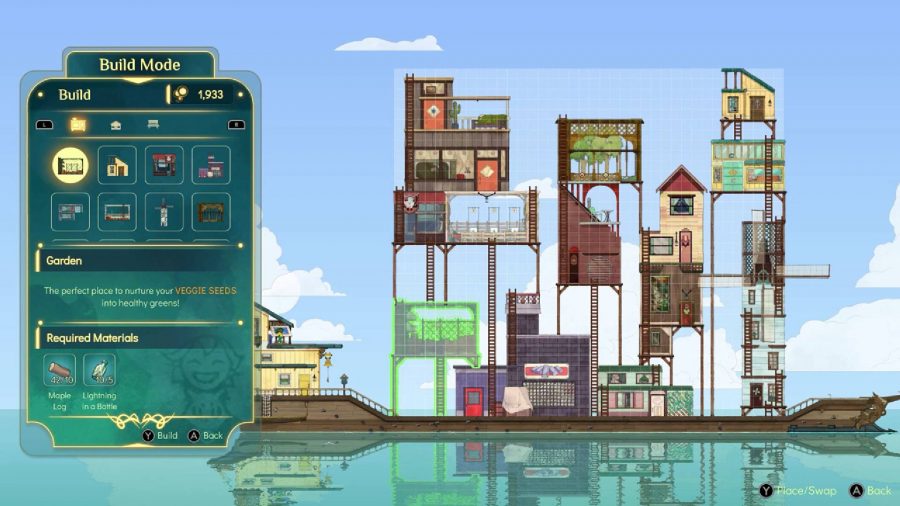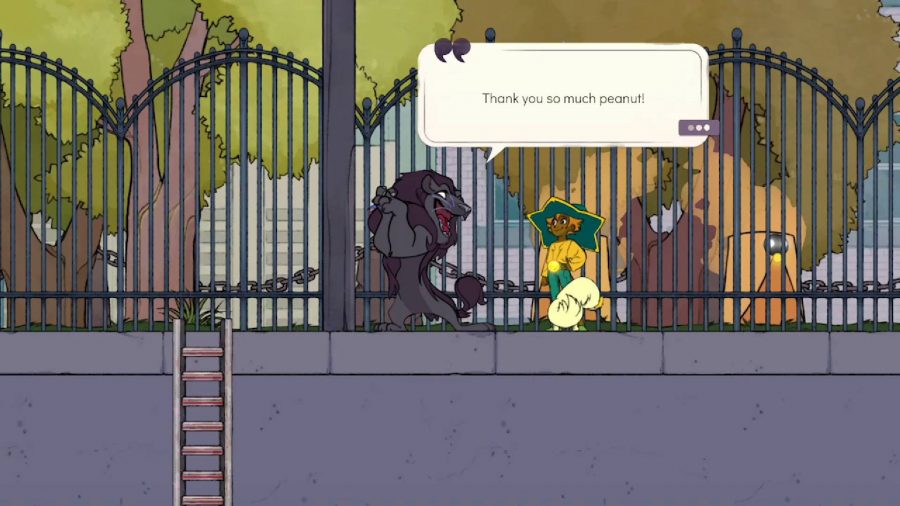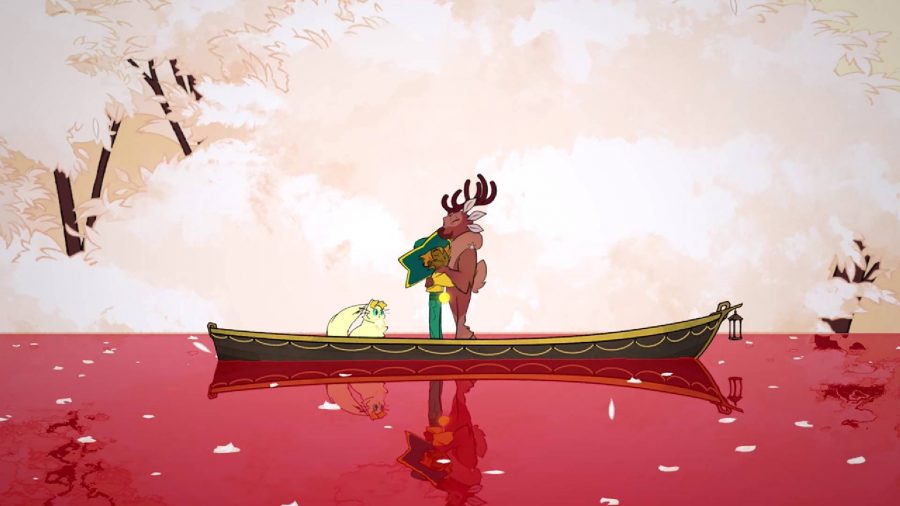To promote the physical release of Spiritfarer, we had the opportunity to sit down with Nicolas Guérin, the creative director at Thunder Lotus Games and discuss the game at length, the theme of death in all of the studio’s games, the many inspirations for the characters, and what the game has meant for people since it’s release.
Spiritfarer tells the story of a young girl called Stella, who finds herself helping spirits to pass on peacefully, by taking care of them on her ship. It came to Nintendo Switch and other consoles last year, and has since gone on to be nominated for several awards, including Best Indie Game and Games For Impact at The Game Awards 2020.
Covering heavy themes of death, loss, and family, the game has resonated with many players since its release. Especially in a heavy year for everyone around the world, Spiritfarer couldn’t have come at a better time to help people process the world around them. Warning, this interview discusses heavy content, including suicide, rape, and obviously death. It also discusses spoilers for the game.
Pocket Tactics – So, I worked backwards through Jotun and Sundered, and there’s a theme of the approach to death which I found really interesting to go back and discover. What inspired the original design of Spiritfarer, and the idea to cover death but make it more comforting?
Nicolas Guérin – When I first joined Thunder Lotus, they had a very simple pitch. It was going to be about Charon and the River Styx, greek mythology, then also in the world of Studio Ghibli, Hayao Miyazaki movies. Then it should play like Stardew Valley. The desire to create this type of project stemmed from the fact that the two previous projects were about death, and they had quite a straightforward approach to this.
To be honest, I’m convinced that the intention is to tackle subjects that concern everyone and everybody. Everyone is either questioning or concerned about death, and death is really interesting because it’s a concept that is misused in the video games industry. You have to kill things to go forward, to beat your challenge. So, I think it was a nice reversal and it talked to me as well, because I was doing AAA games like the Assassins Creed games for a while. I mean you kill so many people.
It’s funny because I haven’t told too many people. I was working on [an] Assassin’s Creed, maybe Revelations, and there is a tool in the editor to actually spawn enemies. Assassin’s Creed is a massively complex game in which you have to make sure characters can go across any surface, and climb buildings, and then you have to fight on rooftops and everything. So you have a shortcut to spawn enemies, and as you press the trigger it literally vomits NPCs out of you, it’s pretty fun to do, and you fly because there’s a flight mode in the editor. If you do this thing you can press a trigger and literally, vomit people that just smash on the ground with ragdoll physics. It’s pretty terrifying. And then I thought, “Oh, these poor guys, I just created them and then they die right away.” And it really struck me, the amount of people we kill in a game is completely unbelievable, and killing is terrible, it’s horrifying, it isn’t a thing we should do at all.
No normal gamer likes killing at all, but yet we all do that on a daily basis in a game. So the reversal of it, the concept of actually, really thinking about death and what it actually means, was the very first idea that came to mind when the project was shown to me.
I’m glad you mentioned Ghibli, because I felt Spiritfarer was heavily inspired by Spirited Away. The ship feels like the hotel, you’re running around after the spirits, but obviously, there’s so much beyond the ship, the rest of the world, all of the different characters. Outside of Ghibli, what other inspirations informed the world of Spiritfarer and the characters?
NG – Yeah, there were tonnes of them. I’m kind of always inspired by anything by Wes Anderson, or maybe the Coen Brothers. To a degree David Lynch as well. I literally borrowed a narrative technique I first heard from the writers who wrote Alien, Dan O’Bannon and Ronald Shusett. At some point, they were talking about the movie [and] they were mentioning what their approach to Alien was. To them it was not a movie about an Alien in space, it was the story or the rape of a young woman in a back alley in New York in the 80s. I feel the whole film is a transposition. It’s happening in space, but every emotional scene, every feeling, every shot, every angle, the atmosphere, the colours are meant to advocate that feeling from a distant point of view.
So I kind of borrowed from them to create Spiritfarer, because my initial reaction was to build the world, have characters, create a whole thing out of it, and then that type of narrative approach allows for much more space, because you know it’s happening in Stella’s head. The whole thing is a recollection of Stella’s memories but kind of twisted, that’s the way she sees it. Then from Wes Anderson, there’s a levity to each of his movies. It’s still dramatic, those moments are pretty intense, but they’re talked about and shown in a light way. Characters are fun, they’re dynamic, they’re simple. They don’t indulge in drama, they just talk about simple things, and that’s it.
It’s pretty close to what life is actually about. When you do terrible things, and when you’re in drama. Yes, you do have moments where you’re completely burdened, you feel you have all that weight on your shoulders, but in the next moment, you have to go to the bathroom, or fix yourself a coffee or something. It’s the juxtaposition of simple moments and terrible moments, that’s what I believe Spiritfarer is about.
That’s really interesting. You look at a film like Royal Tenenbaums and the joke is around death, not on death. It’s there and you can laugh about it without turning it into a cruel thing. And I think that’s what brings so much humanity, even though it’s very weird it makes it feel more realistic.
NG – If you really carefully think about this, Gwen, she’s way too influenced by Margot Tenenbaum. You know, the fur coat, the smoking? Even at the beginning of creating the character, she originally lost a finger, just to tell you how much she was a copy of Margot Tenenbaum. And I thought, no that’s too much. I took elements out.
What I find really interesting is the whole gameplay aspect of building the ship. So much of your time and effort is spent creating these relationships, helping people improve, making rooms for them, and building your own ship. How much did the idea of building something for someone else and then having to leave them behind, inform the decisions in the game?
NG – I saw a way in farm sim mechanics and gameplay to show how kindness can actually be used in a game. The idea was to mimic Stella’s work as a nurse. How does she actually invest time and effort into doing simple, mundane things for these people who are dying? This was again mimicking the general idea that, people are basically at the end of the road but they still have basic needs on a daily basis, and some of them can’t really accomplish anything. So that was a way the farm sim was actually useful, because a farm sim is exactly this. You have simple motivations, like building and crafting, it’s really something you want to do. But there’s not really an end goal. I have to expand, but why? It always baffled me that at the end of a farm sim you would feel empty and dirty. I love Stardew Valley, but I feel all these feelings. Why did I just build all this? Why did I farm, and feel motivated and compelled to create an empire, and marry 100 people and find everything in this world? So in Spiritfarer, you build those things, but not for you, you build them for others.
Now, fun fact, tonnes of people on the team didn’t really like the concept of keeping the houses on the ship. We have an editor mode in which you can actually remove buildings, and everyone told me to remove them, that this is dead weight, literally. I have built a house, and then it’s taking space on my ship, and then I cannot move it around, it sucks. And even in playtest, it’s a natural thing people want, to optimise, they want space on their ship. I had a lot of pressure to get rid of those buildings. And yet, each time I would remember a specific time in my life, which was when I was a young teenager, maybe 12 or 13, my mother’s cousin died, she was a lonely person and she was kind of a hoarder. She had a house that was full of things, and my mother had to [sift] through her belongings to do something with them after she passed away. And I clearly remember this feeling of, “this is what’s left of us?” There’s [souvenirs from] all those places you’ve been, these objects, all these things you’ve bought, and that’s a trace of you.
Each time I was thinking this physical trace we leave behind is also terrible, it’s silly. I mean I look at your shelf [Nicolas points at Nathan’s large shelf of Nintendo figures in the background of the zoom call] and you’re not about to die, but someone is going to have to sift through this [points at pikachu] and someone might find this a treasure, but someone might find it really silly. “Who is this yellow character? He says Pika when I rub his belly?” So the actual amount of stuff we keep in our lives, it’s both extremely uplifting and funny, and still sad and dramatic, because you think “that’s all that’s left of them?” So you build all of this to have people leave, and then that’s all you get. But the whole point, of course, being, that’s not all you get. They also get you as a human being, and you are all shaped by the experience and that’s what counts.
All of the characters, the spirits, and even the smaller NPCs, it’s all so richly and personally written. I wondered how much the writers could really pull from their own experiences when creating these characters, and how much they did. I especially want to know if anyone had an uncle Atul that just loved fried chicken? Because it’s my standout memory of my ship.
NG – Alright, so there are three writers, me, Max, and Alex. Max and Alex are both level designers and writers, I was extremely lucky to find those guys. Because they’re really good writers, and they’re also good designers, which is a pretty rare combination of skills. So I was extremely liberal with what people could write, specifically the NPCs, the denizens we call them, the little guys that have a plume of smoke above their heads. Max wrote almost all of them. My guideline was just to write what you think is fun.
As for personal stories, about an uncle who loves fried chicken, Atul was pretty much inspired by one of the first personal stories that I gathered. It was from Ulrich, one of the sound designers that worked with us. We don’t do in house sound because we only have 15 people on the team, but the sound design is all made by a company called Pixel Audio in Montreal, which are extremely talented. And Ulrich told me at the time, “I do have a story about someone who is important to me and, I think, shaped who I am.” And his uncle was pretty much Atul. He loved doing things, but his desire to live was interesting because it was exactly like Atul, counterbalanced by terrible, dark energy within him.
He committed suicide, which is probably what Atul did, I never really tapped into this, but the fact that Atul disappeared is both a connection to how he actually died and the fact that Stella lost contact with him. But, his public persona he created for himself was a facade. He was cheerful and flamboyant and always doing things to help others, and eating everything he could, organising parties and everything. Yet he had that thing in him that he couldn’t shake, that internal gloom and dread and angst, that basically finished him in the end. So it was extremely fun and terribly sad at the same time, because Ulrich’s uncle was like this, and the most traumatic moment, when Ulrich was talking about his uncle, he felt so proud about what his uncle had taught him. Yet he felt so sad that his uncle could not see this, and he felt anger as well because he left him.
I think almost everyone who played the game felt something personal when they interacted with the world. I lost my great grandmother at the start of last year and she was a woman who was really difficult, but she was also a person I really loved speaking to. Even though she was so old, when she died, I suddenly felt like that time was cut short. But one thing I found really comforting about Spiritfarer is the idea that you have to deal with the unavoidable truth of death. You can’t do everything, and you can’t please everyone. So, I wonder how much the team loved seeing everyone’s interactions with those characters? How rewarding was it for you to see everyone’s personal experience come through with the story that you built for them?
NG – You feel like you’ve accomplished something and it worked, and it moved people. Creating a game like this is taking a bet, because everything can always go sideways. People can find aspects of it to be too boring, too long, too short, not to their taste. So first and foremost, from a professional standpoint, it felt good that we did enough to actually engage a significant number of players. The number of reactions we had was surprising. But what baffled me the most, were people who actually felt like the game was directly linked to them. There were very high numbers of players who described parts of their life that were so extremely similar to what they found in Spiritfarer.
There was a player, she had breast cancer like Summer did, she described her breast cancer like a dragon exactly like Summer did, she was also working in an agricultural field, exactly like Summer did, and also had a woman in her life who died before her exactly like Summer. The number of similarities were intense. But the second thing was the number of people who told us “thank you, I had lost hope in my field” more often than not nursing, and working with patients in tough conditions. Many of them wrote saying, “thank you, the game helped me work through my anxiety, and now I want to be back at it, I want to be a nurse again, I want to be an elderly aid again.” So it’s cool, I wouldn’t say that Spiritfarer was meant for this, but when you create a game that wants to have a purpose beyond pure entertainment, it’s quite comforting to see that type of reaction.
I think one of the most important things that people drew from, was the fact these characters would be kind of bad people, sometimes doing bad things. Was that something the team really honed in on as you were writing? Was it really important to explain that these characters aren’t completely good?
NG – This was 100% the intent, you nailed it. I remember, last week I was browsing through old presentations I had to make to the team just after my arrival, and one of them had, in giant caps in the middle of the screen “CHARACTERS HAVE TO BE REAL” because of two things, first because visually the game is a cartoon, it’s an animated movie, so it’s harder to make people believe in characters that are so whimsical and hand-drawn. If you are a Ghibli fan, you know that you can have 100% real emotions watching an animated movie, but for many people, it’s harder to feel that connection.
Then the second one was always, and I’ll remember this forever, how it always baffled me when people are so nice when people die. Each time you go to a funeral you have a eulogy, and that person was so perfect. Fun fact again, Giovanni is quite literally inspired by my grandfather, and Astrid was his wife, so my grandmother. And he cheated on her for his whole life, I mean he was a douchebag. He was an awesome guy, but with his wife, he was terrible, terrible. And yet, I think we all knew that. I don’t think my grandmother knew exactly what happened, but my mother knew, my uncle knew and I knew since I was a teenager. Yet, there was not one mention of it at the funeral. He’d lived a splendid life of happiness, being a perfect guy, which was not the case at all. It always baffled me how when people die we tend to only remember them as if the bad things you do don’t have an impact, which they can do.
How much of a knife-edge were the heavy topics with the whimsical, cartoony storytelling of the game? Did anything have to be pulled back to make it cheerier?
NG – No actually, more often than not I pressed on the drama button. Basically, the world drawn by Joe, our art director, was absolutely wonderful. And we’d have many interviews with Alex the animation director where the general day-to-day Spiritfarer development was more cheerful than anything else as the characters are fun to look at, things are light-hearted. But some moments I knew I needed to have, more intense, introspective or dramatic moments. And those moments were specifically the last voyages, which is our term to describe when Stella is with a spirit going to the Everdoor.
So most often, I would modify the writing a bit. We worked on that to make sure it hit the right tone, rather than being too silly. I was certain the topic would shine through no matter what because of the situation. But in terms of ratio, I would say Spiritfarer is only 10-15% dramatic as opposed to 85-90% whimsical. I believe there’s only so much you can take as a person. A sombre moment can only be real if it happens for a short amount of time, because it’s contrasted with everything. So it’s a spike of drama, or a spice of sadness.
I really like the two-player co-op in the game, but this is kind of a strange game to share with someone. How much of a shared, warm community around death was something that actually informed the gameplay and ideas?
NG – So there were some elements at the beginning of the project that were in the air when I joined, and couch co-op was one. We believed it was a nice thing for players to do, but it might conflict with the atmosphere and the tone of the game. So the biggest reason we kept it there was because the cat is absolutely awesome and fun, you know Daffodil. Once Daffodil was animated they were so sweet and fun. My cat is part of the inspiration for this dude, it was way too fun. And fun to me equated to elements of levity, which was what I was after. But then, at the first convention we had, some players told us “oh, that’s going to be an awesome way to talk about death with my son, daughter, child.”
I have a seven-year-old now myself, and I was thinking “yeah, that’s actually a good way to tackle death, in an honest way” So I believe at the very least it can help you to have that conversation and we hope it did. Now was it actually detrimental to the atmosphere? Maybe it was a bit. The amount of players who played two-player, [is] maybe 5-10%. But still, it’s something! To go back to a metaphor, many nurses work in tandem, so you have a couple of medical staff working together to help patients. More often than not for elderly patients, who cannot be mobile, they actually have to lift them, so it worked this way as well. With the sense that you share the grief, you share the pain.
Finally, as a studio, you’ve really heavily and succinctly covered death. I wondered how is the team, either in the future of Spiritfarer, or in their next projects, going to continue to challenge themselves to approach this topic next?
NG – That’s a very good question. I don’t want to enter spoiler territory. What I will say is yes, the heavy subject matter will very much be at the forefront of everything else we do. Death itself, I don’t know? Maybe? But I mean, you could probably make fifty games about death from a different angle. Now for me, I’m not sure if I can ship that many games on death. But, what I’m sure of, is that the whole studio, the way we approach game design, will be true and be honest about subject matters that are relevant for everyone. Whoever you are, whatever your culture, your religion or nationality, you should be interested in what we want to talk about. And that’s everything I can say, I think.
